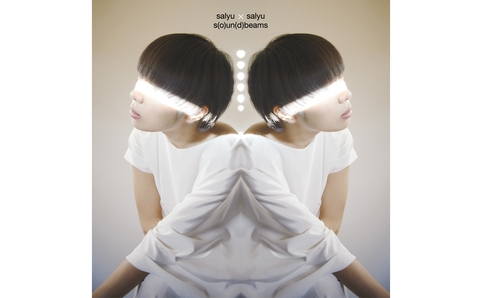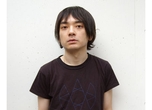Salyu x Salyu: S(o)un(d)beams
The pop chanteuse clones herself, with a little help from Cornelius

Posted: Tue May 10 2011
Ever since she oozed from the headphones of the alienated teens in All About Lily Chou-Chou, it's been obvious that Salyu had one of the most distinctive voices in J-pop. Of all the singers touted as the 'Japanese Bjork', she's perhaps alone in having the technical ability and range to rival Ms. Guðmundsdóttir's talent. Yet her stated preference for letting others do the songwriting has resulted in an almost uniformly bland discography: exquisite vocals only get you so far when all you're given to work with is torch songs and tasteful trip-hop.
All of which makes this team-up with Keigo 'Cornelius' Oyamada all the more enticing: at last, a creative foil with a genuine taste for sonic strangeness. Billed as a concept album, S(o)un(d)beams sets out to map the terrain that can be covered with a good set of pipes and a generous dose of studio trickery. Salyu's voice is chopped, processed and multi-tracked ad infinitum, and if the end results are never as revelatory as the experiments of, say, Maja Ratkje, they're also a lot easier on the ear.
Oyamada handles all of the songwriting, while the lyrics come courtesy of former Yura Yura Teikoku frontman Shintaro Sakamoto, oddball singer Nanao Tavito and – most unexpectedly – rapper-turned-TV-personality Seiko Ito. Opener 'Tada no Tomodachi' sets the stall nicely, starting with an off-kilter piano figure and staccato vocals that, with the addition of hand claps and cello, gradually build into a miniature symphony of strings and polyrhythms. On the first listen, I'd assumed that the vocals were being cut up digitally, but after watching the video I'm not so sure.
Salyu's voice carries her a long way even without the need for assistance, and only 'Utaimasho' (Let's Sing) goes all-out with the production tricks, the vocals swarming mosquito-like across the stereo field before gurgling down a virtual plughole. Elsewhere, the tweaks are more subtle, as when her whoops and blurts in 'Dorei' (Slave) are whisked skywards with the help of some judicious pitch-shifting. This is one of the many moments on the album that recalls Bjork, specifically the dancefloor stomp of 'Big Time Sensuality'. A cover version of Lali Puna's 'Hostile to Me' later on evokes the intimate textures of Vespertine, while the more adventurous voice mutations are clearly indebted to Medulla's digitally enhanced a cappella.
On the title track, a chorus hymnal swells into a drone that's then slowly punctuated by a rhythm that sounds like feet crunching through fresh snow. When a kick drum finally enters close to the two-minute mark, the song reveals itself as a narcotic sibling to Cornelius' 'Music'. It's lovely, yet the spell is immediately broken by 'Mirror Neurotic', a limp slab of electro-funk shot through with plasticky slap bass. I'd also skip the closer, 'Tsuziki wo', which sounded far better in the lo-fi video clip version released prior to the album's launch than it does in its Stevie Wonder-slick incarnation here.
The album's constant flip-flop between lusciously detailed head music and jaunty pop numbers such as these gets a little annoying after a while. Cornelius' solo records are full of such U-turns, of course, but then his vocals were never at risk of attaining the kind of beauty that Salyu manages on songs like the 'Kokoro' (Heart). When you've tasted sounds as beguiling as these, what need could you possibly have for flatulent synth bass?
Time Out Tokyo rating: 

'S(o)un(d)beams' is out now on Toys Factory
Tweets
- About Us |
- Work for Time Out |
- Send us info |
- Advertising |
- Mobile edition |
- Terms & Conditions |
- Privacy policy |
- Contact Us
Copyright © 2014 Time Out Tokyo














Add your comment